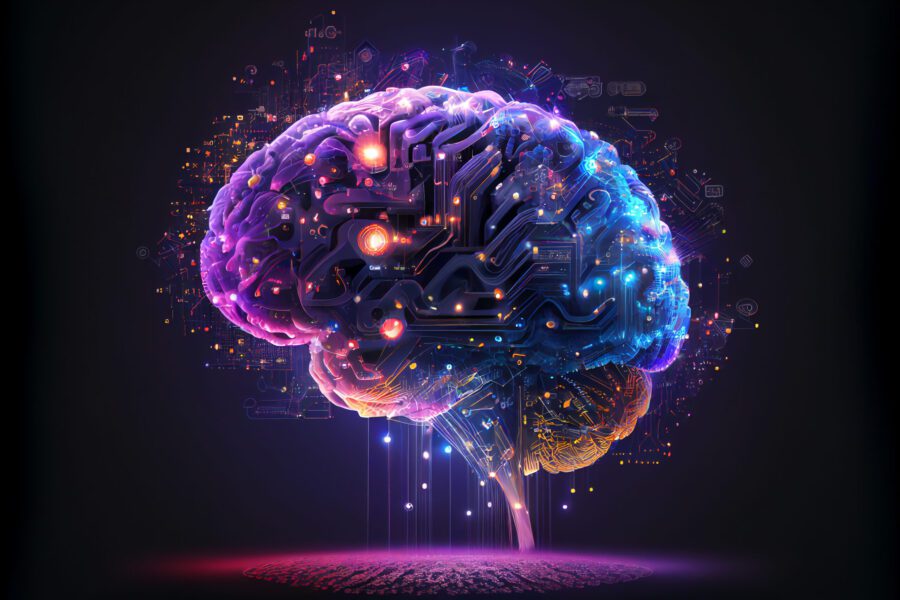
There is a recent paper in Synthese, Qualia share their correlates’ locations, where the abstract stated that “This paper presents the location-sharing argument, which concludes that qualia must share the locations of their physical correlates. The first premise is a consequence of relativity: If something shares a time with a physical event in all reference frames, it shares that physical event’s location. The second premise is that qualia share times with their correlates in all reference frames. Both physicalism and dualism benefit from having qualia share locations with their correlates, as this makes relations between qualia and physical things easier to explain.”
Simply, there is qualia or subjective experience wherever the neural correlates of consciousness exist are. The neural correlate of consciousness is a brain science term for the neurons responsible for consciousness. Qualia is a philosophical term for subjective experience, or what it means for an individual to know that something is being experienced, like the taste of a thing, or the smell of something.
There is a recent paper that proposed that the anterior precuneus (aPCu) is a center for self in the brain. Though, self, subjective experience and being [or the knowledge of being] are related and often present across experiences.
When someone grabs something or takes a walk, the experience of self is involved, preventing it from being a detached action. This implies that even though there is a dedicated center of self in the brain, parts of it [say in pre-prioritization] are also spread across circuits.
There have been lots of people dismissing LLMs as nothing, including that it will never have consciousness or know what it means to have qualia or subjective experience. Maybe AI does not need it, so the argument that it cannot is voided by the needlessness for its excellence.
In the philosophy of mind, there was a landmark paper on what is it like to be a bat, explaining that the real experience of what it is like to be a bat is only possible by being a bat, not for a human to imagine being a bat.
It could be, but how much is out of reach with knowing what it is like to be a bat for humans that have better intelligence than bats? Bats can fly, they use echolocation, humans cannot fly, but built jets, then rockets, exceeding the altitudes of all flying organisms on Earth. Humans also built telescopes, seeing deep into space, and voyagers, probing across the solar system. Intelligence makes what bats do seem like middle school athletes. Whatever it is like to be a bat, there is something better about possessing intelligence: original, learned, or copied.
Intelligence does not rule out the importance of subjective experience, but it also means that across phyla, there are necessity hierarchies, with intelligence at the very top.
Where might qualia be in the brain and are there really neural correlates of consciousness?
Theoretically, the collection of the electrical and chemical impulses of neurons, with their features and interactions are the mind. Sets of electrical and chemical impulses often interact to bring about what is known, experienced or regulated. It is really impulses that direct all the brain is said to do, not neurons.
There is no emotion, feeling, memory, sensation, perception, or consciousness without the interactions and features of impulses. There is also no major difference in the mechanism of all the interactions of impulses. The minor difference, conceptually, is the drifts or stairs available at sets of chemical impulses that make a taste different from a smell or that make consciousness different from a coma.
In a set, when electrical impulses strike chemical impulses, there is rationing of chemical impulses, determining what taste it is, or to what degree.
This rationing is available within the stairs or drifts. It is also where qualia is, for all experiences. This means that the drifts do not just determine why the taste is different, but they also tell that it is the individual [or self] that is sensing the taste.
It is also from one of the stairs or drifts [where access is possible] that intentional action is driven or that explains free will. The human mind works, and part of it is accessible for control, which shows that free will exists. The aPCu as the major center for self in the brain does not rule out self availability across impulses because intentions and actions [and knowing that it is the self] arise within impulses for various functions.
All body parts have representative impulses. So, what is referred to as the mind-body problem is actually how body parts have ambassadors in the brain or impulses, involved in their regulations.
